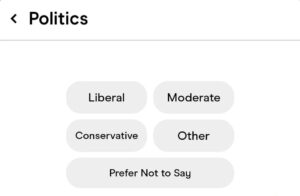Facebook: Almost 500 million people in the world have a profile, and they love it, hate it or love to hate it.
Regardless of the feelings you have toward your profile, Mary Schmich, columnist for the Chicago Tribune, told an audience at a Community Media Workshop in Chicago June 9 that you have to treat it like any relationship.
“It turns out that your relationships on Facebook and your relationship with Facebook are like all the other relationships in your life. They are fulfilling, and annoying, and surprising– in ways good and bad,” said Schmich.
Schmich was originally reluctant to joining the social media world on Facebook. She thought it was the last thing anyone needed because it was just another distraction.
Eventually she did join Facebook because she wanted to be open-minded about the new digital revolution. When she first became a member, status updates consisted of nonsense information, like what someone had eaten for breakfast. But now, “it has evolved into something that is far more useful, and as we the users get used to it, we learn how to use it,” said Schmich.
One of the most important things she does on Facebook is post the columns that she writes. She observed that in a way it has become a news delivery system, which also helps users who aren’t traditional newspaper readers or broadcast news viewers stay up to date on current events.
Schmich’s Facebook friends can also append comments to the stories she posts. Here they are no longer anonymous users on comment boards and they state their opinions respectably, which creates a dialogue.
Schmich also cultivates stories when she finds something interesting on another person’s profile or receives fascinating responses on her profile.
When writing a story about Cabrini Green, she looked up a Facebook page involving the housing development and the people who lived there.
“This was an insight into people who had been displaced from Cabrini that would have been hard for me to get without that easy access on Facebook,” said Schmich.
Adding photos from her Blackberry to her profile is another favorite feature of hers, because the images help reveal the places we live. She mostly posts pictures of the skyline, weather and personal things, but only when she writes about the latter.
Schmich has developed some guidelines for using Facebook as a tool successfully, with the overriding theme of treating it as you would with any relationship you have.
Her first suggestion is that you want to post regularly, but not to the point of being annoying. Second, it helps if you reveal a little about yourself personally, but not your whole life story. And finally, you should respond to posts of people whom you want to respond to you.
Facebook is a tool and is never going to replace face-to-face conversation, she said. Schmich is not sure if its here to stay and doesn’t think we should rely too heavily on it.
“Facebook is just an accessory. It’s like a telephone. It allows you to do certain things more efficiently, but it’s not the same–certainly, as a journalist–but again as a real person going out into the world making real, visceral connections with people, witnessing the non-virtual world. It’s just a conduit to bigger connections,” said Schmich.


















Be First to Comment